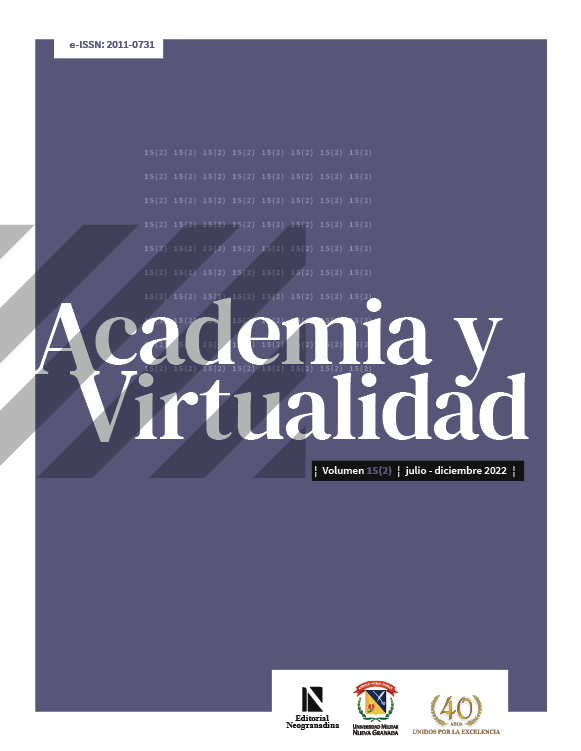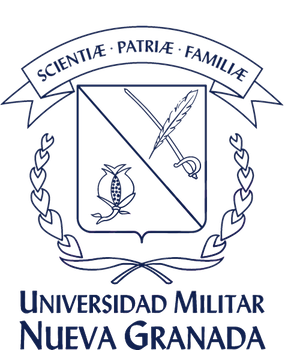Comparison between Face-to-Face and Remote Learning for Teaching Automatic Control Systems
Abstract
This paper presents a comparison between face-to-face and remote teaching of a university level course on automatic control systems. A set of learning activities is proposed to teach and evaluate the course. These activities aim to strengthen problem solving, teamwork, communication and self-learning skills. The activities were developed using the interactive learning applications: Matlab Grader, Matlab Live Scripts, Google Classroom, Google Meet and Google Docs. A survey applied to students who took the course face-to-face in 2019 and remotely during 2020 showed the advantages of the remote approach for most aspects of each of the skills mentioned. However, students perceived that their contribution to teamwork was greater when they were in a physical classroom. Course grades improved by an average of 10 % for the remote modality.
Downloads
References
Al-Khazraji, A. y Ismaeel, S. (2020). Efficient Practices on Teaching Modeling and Simulation for Engineers. 2020 IEEE Canadian Conference on Electrical and Computer Engineering (CCECE) (pp. 1-4). Londres: IEEE Xplore. DOI: https://doi.org/10.1109/CCECE47787.2020.9255788
Arévalo, V., Vicente-del-Rey, J., García-Morales, I. y Rivas-Blanco, I. (s.f.). Minivideos tutoriales como apoyo al aprendizaje de conceptos básicos para un curso de Fundamentos de Control Automático. Revista Iberoamericana de Automática e Informática industrial, 17(2), 107-115. DOI: https://doi.org/10.4995/riai.2020.12156
Bravo M, D. A. y Rengifo R., C. F. (2014). Herramienta para la enseñanza de las ecuaciones de Lagrange basada en la simulación de sistemas dinámicos. Revista mexicana de física E, 60(2), 111-115.
Chow, J. H. y Cheung, K. W. (1992). A toolbox for power system dynamics and control engineering education and research. IEEE Transactions on Power Systems, 7(4), 1559-1564. DOI: https://doi.org/10.1109/59.207380
González González, C., Fardoun, H., Collazos, C. y Yousef, M. (2020). Estudio exploratorio en Iberoamérica sobre procesos de enseñanza-aprendizaje y propuesta de evaluación en tiempos de pandemia. Education in the Knowledge Society (EKS), 1-9. DOI: https://doi.org/10.14201/eks.23537
Hayashi, Y., Fukamachi, K. y Komatsugawa, H. (2015). Collaborative Learning in Computer Programming Courses That Adopted the Flipped Classroom. International Conference on Learning and Teaching in Computing and Engineering (pp. 209-212). Taipei. DOI: https://doi.org/10.1109/LaTiCE.2015.43
Heradio, R., Torre, L. d. y Dormido., S. (2016). Virtual and remote labs in control education: A survey. Annual Reviews in Control, 1-10. DOI: https://doi.org/10.1016/j.arcontrol.2016.08.001
Khan, S., Jaffery, M. H., Hanif, A. y Asif, M. R. (2017). Teaching Tool for a Control Systems Laboratory Using a Quadrotor as a Plant in Matlab. IEEE Transactions on Education, 60(4), 249-256. DOI: https://doi.org/10.1109/TE.2017.2653762
Fernández-Samacá, L., Ramírez-Scarpetta, J. M. y a Orozco-Gutiérrez, M. L. (2012). Project-based learning approach for control system courses. Sba: Controle & Automação Sociedade Brasileira de Automatica, 23(1), 94-107. DOI: https://doi.org/10.1590/S0103-17592012000100008
Gil Galván, R., Martín Espinosa, I. y Gil Galván, F. J. (2020). Percepciones de los estudiantes universitarios sobre las competencias adquiridas mediante el aprendizaje basado en problemas. Educación XX1, 271-295. DOI: https://doi.org/10.5944/educxx1.26800
Rengifo, C. F. y Bravo, D. A. (2020). A Project-Based Learning Approach to Teach Identification and Control Systems. IEEE Revista Iberoamericana de Tecnologías del Aprendizaje, 15(1), 10-16. DOI: https://doi.org/10.1109/RITA.2020.2979171
Unesco. (2020). Education: From disruption to recovery. Obtenido de https://en.unesco.org/covid19/educationresponse
Vargas, H., Sánchez, J., Jara, C., Candelas, F., Reinoso, O. y Díez, J. (2010). Docencia en Automática: aplicación de las TIC a la realización de actividades prácticas a través de Internet. Revista Iberoamericana de Automática e Informática Industrial, RIAI, 35-45. DOI: https://doi.org/10.1016/S1697-7912(10)70006-6

Copyright (c) 2022 Academia y Virtualidad

This work is licensed under a Creative Commons Attribution-NonCommercial-NoDerivatives 4.0 International License.











